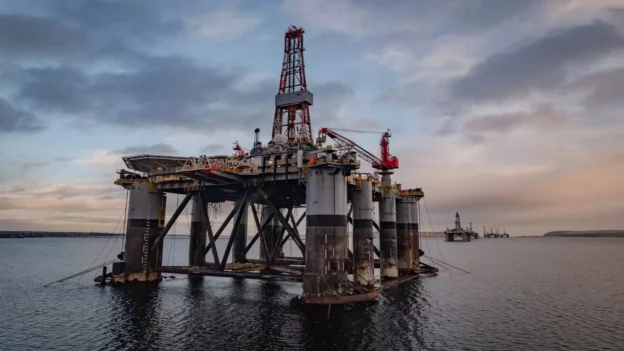The US Department of the Interior (DOI) recently announced a new regulation that imposes greater financial guarantees on the oil and gas industry for the decommissioning of offshore platforms .
This measure, disclosed in a statement on the DOI website, seeks to protect taxpayers from costs that traditionally fall on them when offshore offshore platforms platforms reach the end of their useful life. The rule, established by the Bureau of Ocean Energy Management (BOEM), will go into effect soon, ahead of what was initially scheduled for 2025 .
The new DOI regulation
Under this new regulation, it is estimated that the industry will have to provide close to $6.9 billion in new financial guarantees . This effort is part of a broader strategy to ensure that taxpayers are not forced to cover decommissioning costs borne by the industry.
Likewise, the BOEM has established a framework that allows current lessees and grant holders to gradually comply with these requirements over three years, thus providing flexibility while ensuring compliance with the new requirements.
Notably, the DOI explained that the regulation is based on two main indicators to evaluate the financial risk that companies may pose to taxpayers: the financial health of the company and the value of oil and gas reserves . This simplified approach uses nationally recognized credit ratings or equivalents to determine the financial strength of companies and compares the current value of proven oil and gas reserves to estimated decommissioning costs.
Deb Haaland, DOI Secretary, highlighted the importance of this regulation:
The U.S. taxpayer should not be responsible for the cleanup costs of offshore oil and gas operations.
This regulation updates and strengthens the requirements that were already two decades old, adjusting them to the current reality and the needs of the outer continental shelf.
The role of companies in the dismantling of platforms
This regulatory update also reflects a change in the perception and management of environmental and financial risks associated with the exploitation of natural resources in sensitive areas.
By increasing the financial responsibility of companies, it fosters greater awareness of the importance of planning the full life cycle of infrastructure, including its eventual decommissioning, which can lead to innovations in sustainability practices and impact reduction technologies. environmental in the industry.
Follow us on social networks and don’t miss any of our publications!
YouTube LinkedIn Facebook Instagram X
Source: DOI
Photo: shutterstock

